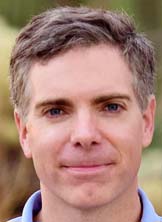Donald Trump has surprised us all so many times, but could it be that he will go down in history as a politician who, in the vein of Franklin D. Roosevelt and John F. Kennedy, won by mastering a revolutionary new technology?
I'm speaking, of course, of Twitter. In recent days, Trump has used the platform to attack the cast of "Hamilton" (a move some see as a devious diversion from other news, including legal settlements over Trump University) and to express some kind words about Sen. Chuck Schumer on Sunday.
If you think it's odd that Trump, a 70-year-old who ran a decade after the medium was invented, is the one to have grasped the potential of social media, you're not alone. But, in a way, it makes cyclical sense. Politicians are usually lagging indicators. Warren G. Harding was the first president to be heard on the radio, but Franklin Roosevelt was the first to fully comprehend radio's potential for communicating intimacy with the American public.
While FDR had appeared on TV, and Harry Truman was the first president to deliver a televised speech, it wasn't until John F. Kennedy's campaign in 1960 that a politician capitalized on the fact that TV was more than just radio with pictures. Just as radio was an obvious benefit to a president who had a physical disability, TV was a blessing for a president who oozed charisma.
Whether Harding or Truman, the first president to use a given medium in office is never the one to master it, primarily because the temptation is always to see a new technology through the lens of an old paradigm.
As the late author Neil Postman observed, it is incorrect to think of television as an extension of an old medium, just as it would be foolish to think of the automobile as a horseless carriage. Yet, the fact that films with sound were originally referred to as "talkies" betrays the fact that we almost always see technological advancements through the prism of an old template.
This happens until someone with creativity and vision (and necessity!) discovers that each technology is inherently different. In the case of radio, FDR was the first president to fully grasp its potential to humanize politics; in the case of television, JFK (vs. Nixon) - and later, Ronald Reagan - deftly harnessed its ability to glamorize politics with images.
Which brings us to President-elect Donald Trump. Barack Obama's image is younger and hipper, but his use of social media generally fit into an old paradigm. Twitter was treated like a fax machine. And "new media" outreach often meant appearing on podcasts and YouTube shows, which could be thought of as being similar to TV shows, except for the fact that they were broadcast on the internet (again, the horseless carriage analogy). To be sure, these shows were more irreverent than mainstream programs or outlets, but there was still a mediator between the president and the public. Trump seems to have grasped that social media - Twitter, specifically - lends itself to being a more intimate and unfiltered medium.
This is not to say there are no inherent dangers in the president-elect's use of Twitter. A lot of Trump's scandals and gaffes (his own, as well as those of his administration - looking at you, Mike Flynn!) are the product of Twitter. There were times during the campaign when Trump's tweets seemed to step on stories, thereby changing the subject from a Hillary Clinton scandal to something outrageous. And reports that his staff had finally wrested his Twitter account away seemed to coincide with his success at the end of the general election.
Having said that, I've long thought that, were it not for Twitter and 24-hour cable news, Trump's nomination and election would not have been possible. And it could be just as valuable in terms of governing. Could it be that Twitter is his secret weapon?
With Twitter, Trump is able to go around the media filter. This was sometimes true with TV (Reagan would certainly use TV to go over the heads of his critics), but the last time a medium allowed a president to do such a thing to this degree was when FDR used the "fireside chat."
The New York Times noted that FDR's "use of this new instrument of political discussion is a plain hint to Congress of a recourse which the president may employ if it proves necessary to rally support for legislation for which he asks and which the lawmakers may be reluctant to give him."
Don't be surprised if, like FDR, Trump marshals his Twitter followers to lobby and troll members of Congress who oppose him. Let's suppose, for example, some principled conservative House members oppose his plans for infrastructure spending. President Trump could communicate directly (and at no expense) to constituents via Twitter. And, in this world where community is taking a backseat to individualism and atomization, don't be surprised if Republican base voters are more sympathetic to President Trump than they are to their locally elected officials.
This is not to paint Trump in too glamorous a light. Many of us have been using Twitter for years. He wasn't exactly an early adopter. And God knows he has used it often in ways that are unseemly and irresponsible. But he does seem to have understood it in a way that has escaped other politicians. And he does seem to understand that he can use Twitter to go over the heads of media elites (TV hosts, newspaper editors, etc.) and also to drive his message to the mainstream media.
In a year when spending countless millions of dollars on TV ads seemed to be a fruitless endeavor, have we finally arrived at the point where social media supplants everything else? The revolution will not be televised.
Matt K. LewisBR>
Roll Call
(TNS)


 Contact The Editor
Contact The Editor
 Articles By This Author
Articles By This Author